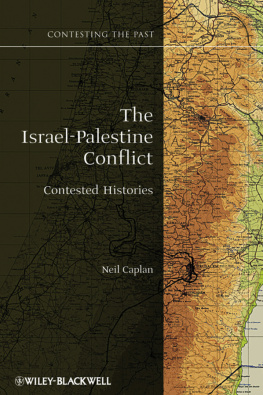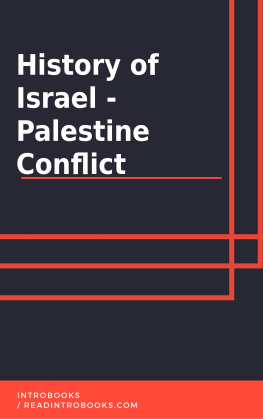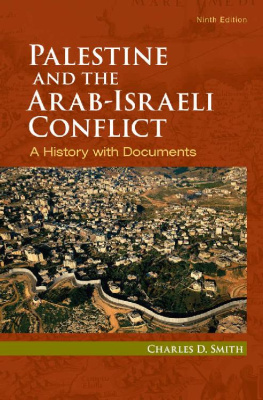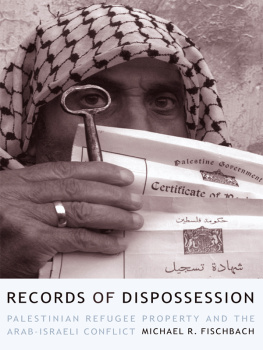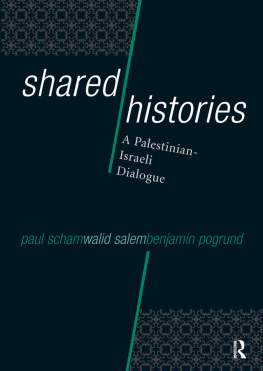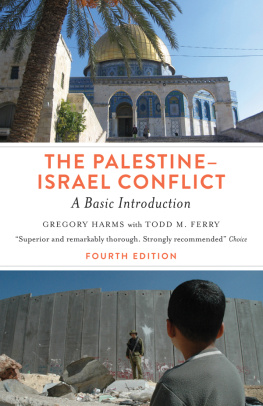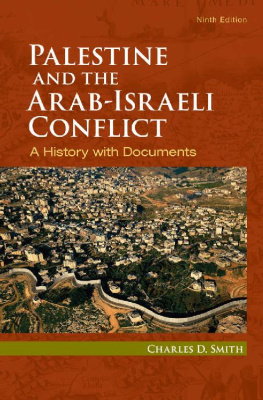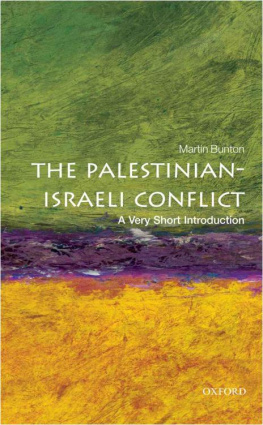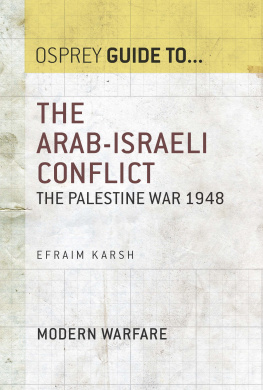
Contesting the Past
The volumes in this series select some of the most controversial episodes in history and consider their divergent, even starkly incompatible representations. The aim is not merely to demonstrate that history is argument without end, but to show that study even of contradictory conceptions can be fruitful: that the jettisoning of one thesis or presentation leaves behind something of value.
Published
Contesting the Crusades
Norman Housley
Contesting the German Empire 18711918
Matthew Jefferies
Vietnam: Explaining Americas Lost War
Gary R. Hess
Contesting the French Revolution
Paul Hanson
The IsraelPalestine Conflict: Contested Histories
Neil Caplan
In preparation
European Renaissance
William Caferro
Witch Hunts in the Early Modern World
Alison Rowlands
Reformations
C. Scott Dixon
The Rise of Nazism
Chris Szejnmann
Origins of the Second World War
Peter Jackson
The Enlightenment
Thomas Munck
The IsraelPalestine Conflict
Contested Histories
Neil Caplan
This edition first published 2010
2010 Neil Caplan
Blackwell Publishing was acquired by John Wiley & Sons in February 2007. Blackwells publishing program has been merged with Wileys global Scientific, Technical, and Medical business to form Wiley-Blackwell.
Registered Office
John Wiley & Sons Ltd, The Atrium, Southern Gate, Chichester, West Sussex, PO19 8SQ, United Kingdom
Editorial Offices
350 Main Street, Malden, MA 02148-5020, USA
9600 Garsington Road, Oxford, OX4 2DQ, UK
The Atrium, Southern Gate, Chichester, West Sussex, PO19 8SQ, UK
For details of our global editorial offices, for customer services, and for information about how to apply for permission to reuse the copyright material in this book please see our website at www.wiley.com/wiley-blackwell.
The right of Neil Caplan to be identified as the author of this work has been asserted in accordance with the Copyright, Designs and Patents Act 1988.
All rights reserved. No part of this publication may be reproduced, stored in a retrieval system, or transmitted, in any form or by any means, electronic, mechanical, photocopying, recording or otherwise, except as permitted by the UK Copyright, Designs and Patents Act 1988, without the prior permission of the publisher.
Wiley also publishes its books in a variety of electronic formats. Some content that appears in print may not be available in electronic books.
Designations used by companies to distinguish their products are often claimed as trademarks. All brand names and product names used in this book are trade names, service marks, trademarks or registered trademarks of their respective owners. The publisher is not associated with any product or vendor mentioned in this book. This publication is designed to provide accurate and authoritative information in regard to the subject matter covered. It is sold on the understanding that the publisher is not engaged in rendering professional services. If professional advice or other expert assistance is required, the services of a competent professional should be sought.
Library of Congress Cataloging-in-Publication Data
Caplan, Neil, 1945
The IsraelPalestine conflict: contested histories/Neil Caplan.
p. cm.
Includes bibliographical references and index.
ISBN 978-1-4051-7539-5 (hardcover: alk. paper) ISBN 978-1-4051-7538-8 (pbk.: alk. paper) 1. Jewish-Arab relations. 2. Arab-Israeli conflict. 3. IsraelForeign relationsArab States. 4. Arab StatesForeign relationsIsrael. I. Title.
DS119.7.C3195 2009
956.04dc22
2008054920
Dedicated with deep sadness to the many victims of this protracted conflict past, present, and future
List of Maps
Palestine 1922, 1948, and Israel 1949
Palestine under British Mandate, 1923
Peel Commission Partition Plan, July 1937
United Nations Partition Plan, 1947
Israel and Her Neighbours, 19491967
Israel and Occupied Territories, 1967
Preface
The June 1967 war in the Middle East marked my first awakening, as a graduate student searching for an area of doctoral research, to the complexities of the ArabIsraeli conflict. My first impulse was a problem-solving one, flowing naturally from personal experience as my own country, Canada, was celebrating its centennial and engaging in lively public debates about how the English and French nations could continue living harmoniously under a single federal rgime. A year of exploratory reading and study in London unexpectedly sparked a fascination with the historical origins and development of the conflict, and totally shifted my focus from the future to the past.
Since that time I have been researching, writing, and teaching almost exclusively about the history, diplomacy, and psychology of the Arab Israeli conflict. Digging in archives for authentic primary sources and writing articles and monographs for a scholarly audience are the activities I have enjoyed best. This, I suppose, makes me a positivist historian. But at the same time I have also developed a deep interest in and respect for the psycho-social dimensions of this conflict.
Very little about the dispute and the attitudes of the various parties is simple and straightforward, making it especially difficult to summarize events and issues succinctly while doing justice to the complexities involved. To create this volume of the Contesting Histories series I have combined lecture notes from introductory courses taught at various universities with some critical reflections about how the conflict is portrayed in academic and other writing. This book situates itself among several overview histories already available, but attempts to go beyond the mere retelling of what happened by focusing on a series of core arguments that seem to deadlock protagonists and historians alike.
One of the daunting challenges in producing this book has been to choose an appropriate level of detail in setting out the history of the conflict for undergraduates. Interested readers will, I hope, benefit from my extensive use of footnote references, pointing to additional details, nuances, and contrary interpretations that could be profitably consulted but which, if included, would make this text too dense.
Finally, there is the very tricky business of perceptions and bias. One of the hazards of writing on this subject is the near certainty that there will always be someone who will react to a word or phrase as being an oversimplification or misrepresentation of an event or a protagonists motivation. I have done my best to listen to the voices in my head requiring me to revise frequently with sensitivity to subtleties of wording and tone. Readers, I hope, will appreciate the attempts made to allow for each of the contested versions of the history of this dispute to receive a fair hearing alongside its rivals.
I feel truly blessed with a number of colleagues and friends who have generously helped me by answering queries and by critiquing earlier draft proposals and chapters. They will most likely disagree with some aspects of my presentation of the history or the historians, so I will spare them the embarrassment of naming them here and will instead convey my thanks privately. Most generous of all, my wife Mara provided much-needed emotional support and sacrifices that allowed me optimal conditions for the long days of writing.
Next page
